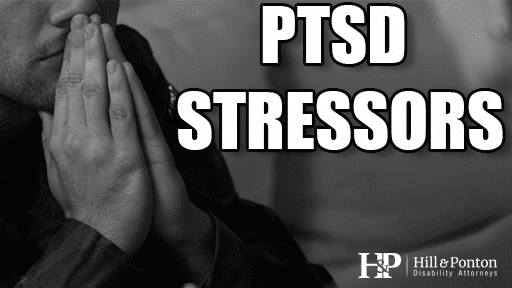As I work on claims involving disability benefits for PTSD, I often wonder if veterans are fully aware of the services available through the VA for treating their PTSD. Normally after reading pages and pages of mental health medical records that are at best less than thorough, and at worse, sometimes downright damaging, I find myself feeling discouraged for our veterans, and thinking about how we as advocates can better educate our clients to help them obtain the benefits they deserve.
Most veterans with PTSD are familiar with the main VA medical centers and outpatient clinics. But what I’ve seen is that many veterans are not aware that they may be eligible for treatment through the VA’s Vet Center Program. The Vet Centers offer individual and group counseling, not only for PTSD, but also for bereavement, MST, and other issues impacting veterans. Here is a link from the VA’s website for more information about this program: https://www.vetcenter.va.gov/index.asp
So, how can obtaining treatment at a Vet Center help veterans with their disability claims. Here’s how:
- Proving the Diagnosis– One of the biggest issues facing veterans when trying to obtain service connection for PTSD, is proving that they have this condition in the first place. As discussed in some of our earlier blogs, you must have a “current diagnosis” in order to obtain service connected benefits. I have seen that veterans may be obtaining treatment at a VA medical center or clinic for various symptoms (and perhaps even be on medications); however, it is not uncommon for their medical records to fail to obtain an official diagnosis of PTSD, or for the records to just state “PTSD traits.” In my experience, the practitioners at the Vet Centers seem to do a much better job of thoroughly assessing veterans to come up with the correct diagnosis. The Vet Centers will also frequently administer psychological testing to help verify the diagnosis, which becomes very beneficial later on down the line when a Compensation and Pension examiner tries to challenge whether or not the veteran even has PTSD, despite the opinions of the treating practitioners to the contrary.
- Proving the Nexus –Once you’ve established that you have PTSD, you have to prove that the PTSD is somehow related to your military service. This is known as the “nexus.” The way you get to the nexus is through medical opinions. Oftentimes, I’ve seen that practitioners at the Vet Centers will take the extra time to carefully document the connection between what happened in service and the current condition. This is in contrast to the typical records I see from the main VA facilities, which normally fail to discuss any nexus, or, if an attempt to discuss nexus is made, it may not be sufficient for VA disability purposes. Again, without the nexus, there is no case. Once you have the nexus, then the biggest hurdle is…
- Proving the Rating – the rating is based upon the severity of symptoms. The VA uses the same rating schedule for most mental disorders to evaluate this issue. The key is that if you are experiencing severe PTSD symptoms, those symptoms have to be documented in order for the VA to get the rating correct. I have seen practitioners at the Vet Centers “go to bat” for their veterans in this regard.
The bottom line is that it is important that the medical records properly reflect the true nature of the diagnosis and the symptoms, and ideally veterans should be proactive in this regard to ensure that their practitioners are (1) aware of the full impact the PTSD has had on their lives, and (2) documenting accordingly. If the treatment offered through the main VA facility is insufficient or not working for whatever reason, the VA’s Vet Center Program may be a viable alternative.



